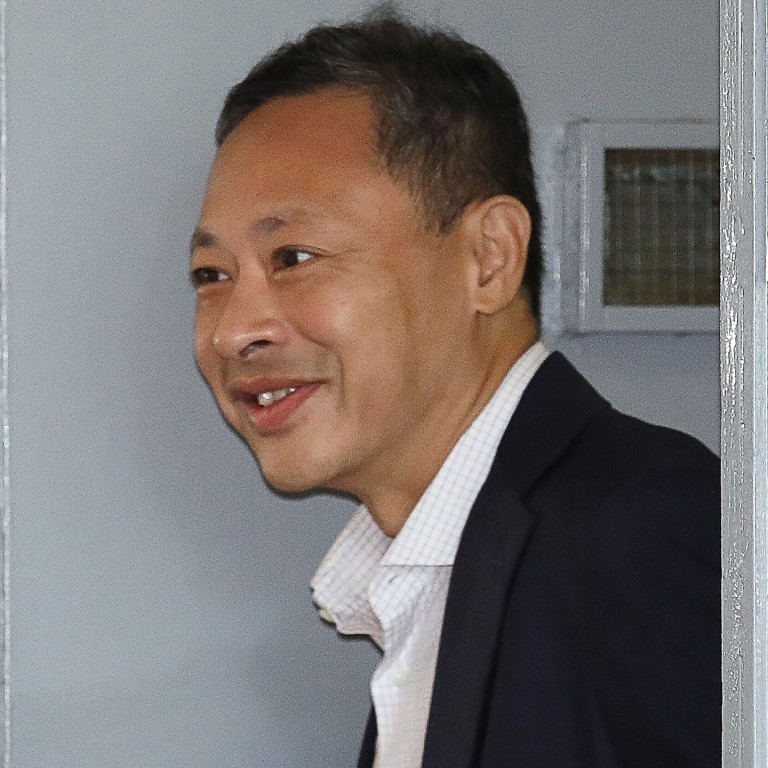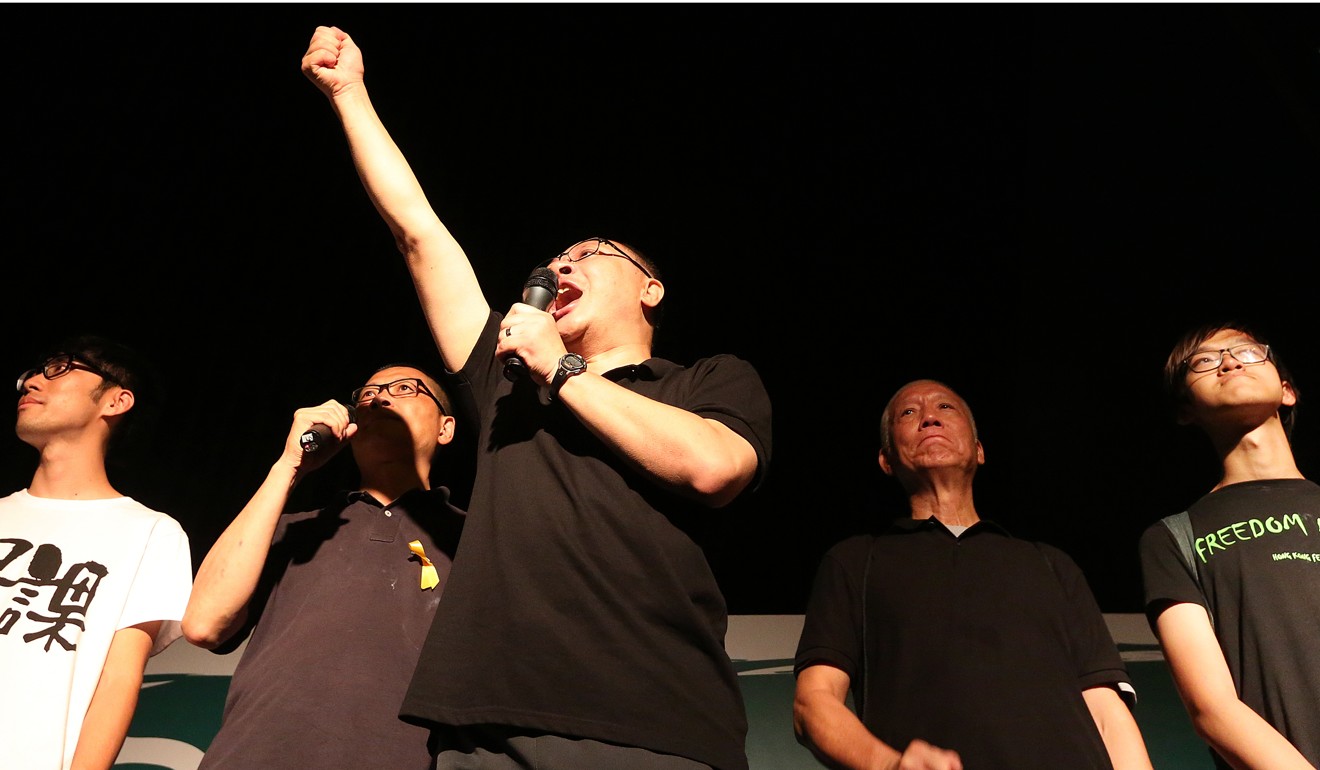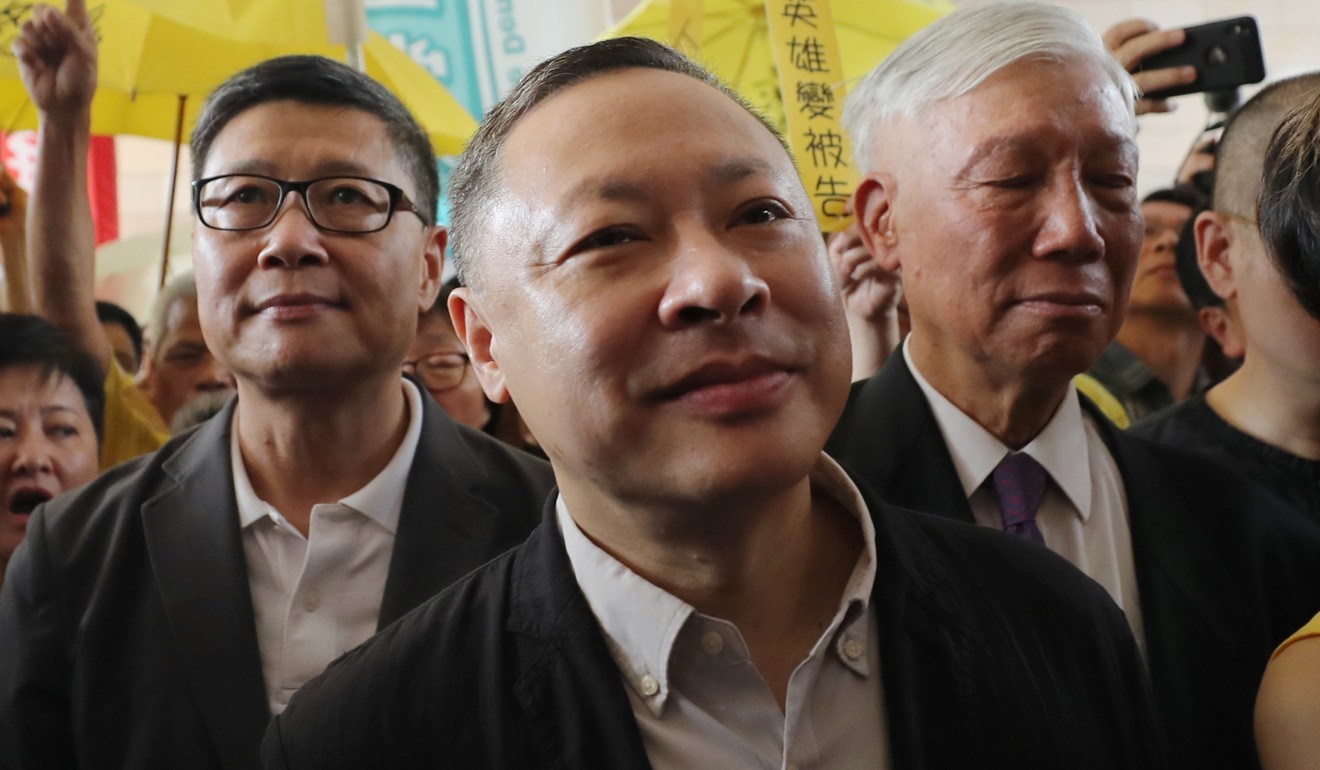
University of Hong Kong starts procedure to decide whether co-founder of Occupy movement Benny Tai should be fired from his teaching job
- HKU Alumni Concern Group says a panel has been formed by the university to look into Benny Tai’s teaching position
- It says the move ahead of the hearing on Tai’s appeal at the Court of Appeal on February 24 will be ‘a breach of procedural justice and a violation of the university’s core values’
The University of Hong Kong has started a procedure to decide whether one of its professors who co-founded the Occupy movement should be fired, an action described as “unjust” by an alumni group as the scholar is still seeking an appeal against his criminal convictions.
HKU Alumni Concern Group said on Tuesday it had learnt that a “committee of inquiry into possible good cause” had been initiated by the university to look into Benny Tai Yiu-ting’s teaching position, and a fresh round of verbal deliberation on his case would be held this week.
The associate professor of law was in April last year sentenced to 16 months in prison over two public nuisance charges related to the civil disobedience movement in 2014, during which protesters brought several parts of the city to a standstill for 79 straight days seeking greater democracy.
He was granted bail in August pending an appeal, as his leave to appeal will be handled by the Court of Appeal next month.
Concern group deputy convenor Mak Tung-wing said the initiation of the verbal deliberation this week ahead of the commencement of the hearing on his appeal bid would be “a breach of procedural justice and a violation of the university’s core values”.
“Once [during] the point of deliberation, should Benny Tai’s appeal be [upheld], you waste all your time,” Mak said.

Under HKU’s ordinance and procedures, vice-chancellor Zhang Xiang has the discretion to initiate the formation of an inquiry committee if he feels there is a “good cause” behind terminating Tai’s tenure.
Dismissal on a good cause would need to show the accused tenured staff suffered from an “inability to perform efficiently the duties of the office”, had neglected his duty, or there had been “misconduct in an official or a private capacity”.
Hong Kong Police to probe more than 200 Occupy protesters
Two sources said the inquiry committee against Tai was initiated last June following his conviction in April and it already exchanged correspondence with him. Tai is represented by a lawyer in the proceedings.
The inquiry, according to a third source, has accused Tai of failing to discharge his duty due to his earlier imprisonment. It has also accused Tai of misconduct due to the conviction.
“The allegation Tai faced was that he committed misconduct due to the conviction over public nuisance [in Occupy trials], rendering him unfit to remain in office,” the source said.
Tai said he would fight till the end.
“I hope the procedure will be put to a stop, at least until the legal proceedings end,” he said, referring to the appeal hearing to be held on February 24. “The entire procedure should not have been triggered, because acts of civil disobedience should not come as a case of good cause for termination.”

The five-member panel is chaired by HKU’s vice-president and provost, pro-establishment scholar Richard Wong Yue-chim.
According to the established procedure, once the inquiry committee completes looking into the facts of the charges, it will send the report of findings back to the HKU senate – the principal academic authority with members formed by staff and students. The senate will then make a recommendation to the governing council for a decision on the termination of an employee.
Benny Tai, serving jail term for co-founding 2014 Occupy protests, gets bail
An appeal against the decision can be raised either through the chancellor – a role assumed by the city’s Chief Executive – or by judicial review.
An HKU spokeswoman said the university had “stringent and impartial procedures in handling human resources matters”, which “clearly uphold and safeguard the teacher’s rights at every stage of the proceedings”.
Acting dean of HKU’s faculty of law Professor Fu Hualing said Tai had been taking unpaid leave, but declined to comment on the inquiry procedure.
“Benny is not teaching and has been taking unpaid leave,” Fu said, adding there was no established procedure on how the proceedings would move forward.
The concern group will stage a rally at Edinburgh Place in Central on Wednesday to protest against the university’s handling of Tai’s case. The demonstration has been approved by police.


